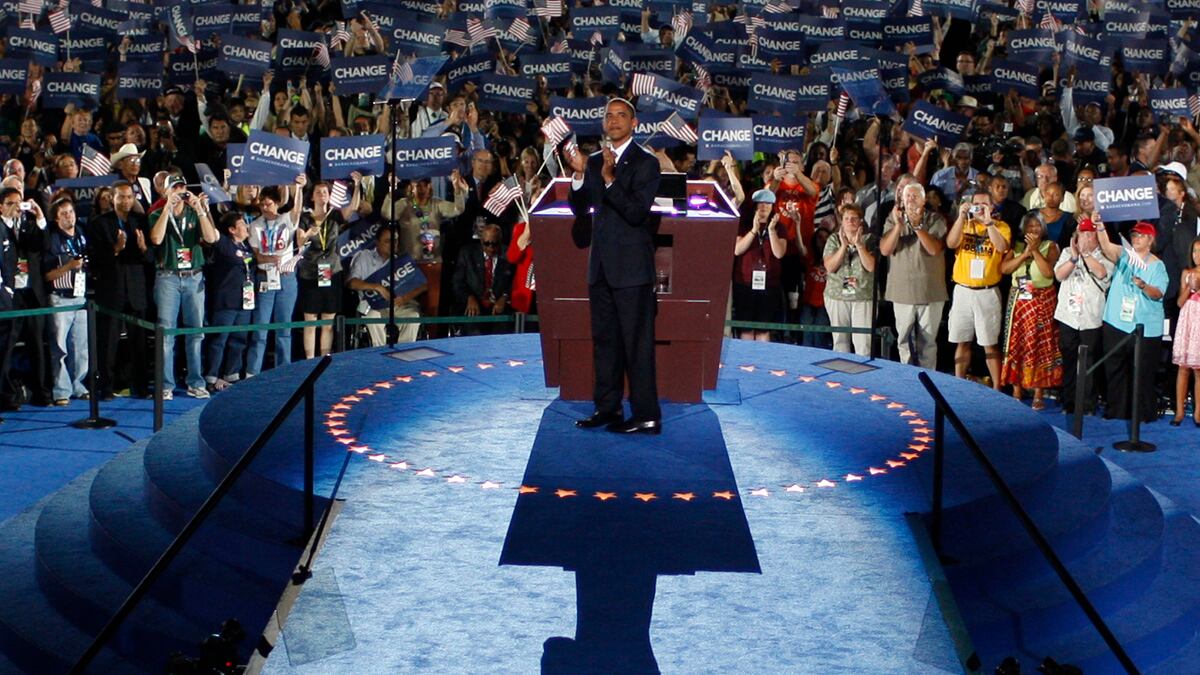As Barack Obama prepares to look ahead to the next four years here in Charlotte, the media are looking back.

They are, perhaps inevitably, measuring the president by the promise and excitement of 2008. And the verdict, not surprisingly, is that he fell way short.
That strong undercurrent at the Democratic convention threatens to exert a strong pull on the way the gathering is portrayed. And while the president is pushing back in interviews against Mitt Romney and the Republicans, he is in some ways being forced to run against his old self.
Consider The Washington Post, reflecting on Obama’s vow during the Iowa caucuses to move beyond the bitterness and pettiness of the Beltway:
“Today Obama’s words sound quaint, even naive. Instead of bipartisanship, there is polarization as deep as it has been in modern times. Instead of cooperation, there is confrontation. Instead of civility, there is rudeness. The political system seems frozen and more resistant to compromise than ever.”
Or the Los Angeles Times, which compares the mood of this convention to the last one:
“The last time Democrats assembled for their national convention, the proceedings were awash in a mix of giddy exuberance and teary emotion as delegates nominated the party's first African American presidential candidate.
“Four years after the party in Denver, that jubilation has cooled.”
Time has a piece on how Obama mishandled the stimulus, allowed the Republicans to define it as pork-barrel politics, failed to sell the sizable tax cut it contained, and never recovered.
The president can mount a coherent case that his policies would be better for the country than Mitt Romney’s. But he can never win the Obama-vs.-Obama debate. He can’t argue that he lived up to his promises, not with the economy in the doldrums and Washington in gridlock as the country marches toward a fiscal cliff of automatic tax hikes and deep spending cuts.
So he is doing the only thing he can do: draw contrasts with the other side. In an interview with USA Today, the president says the Republicans “have spent a lot of time creating a fictional Barack Obama who is supposedly taking the work out of welfare reform, or doesn't think small businesses built their own businesses.”
The president put it this way to Time:
“This isn’t a matter of who is more patriotic or who is more empathetic towards people or who is nicer. It’s a hard-headed assessment of what makes our economy grow. And the facts are on my side in this argument.”
And that is where Obama finds himself as his party is ready to nominate him for a second term. He is making a policy-based argument after running as the candidate of hope. He is appealing to the head and not the heart. His challenge to use this week to cast the race as between two flesh-and-blood men, not the apparition of 2008.






